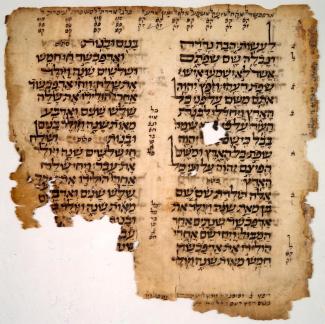Event

Attention: Puzzle Lovers, Citizen Scientists, Emerging Researchers! BRING YOUR LAPTOPS!
Members of the University of Pennsylvania community—undergrads, grads, faculty and staff— have the opportunity to participate in the recovery of unknown chapters of the history and culture of medieval Jews, Muslims and others who lived on the southeastern shores of the Mediterranean. Tens of thousands of scanned Geniza fragments can be accessed through a site developed by the Penn Libraries in partnership with The Zooniverse. Your help is needed to expedite research.
How can you help?
At this initial phase, the primary work to be done involves sorting fragments by language, styles of writing and several other codicological characteristics. Help with transcription — from Hebrew, Arabic, Judeo-Arabic and Aramaic — will formally be requested when the transcription phase of the project is deployed, in Spring 2018, but opportunities to do so are even available now.
What will happen at this meeting?
The Penn Libraries’ Judaica Digital Humanities Coordinator, Laura Eckstein, will explain how you can immediately contribute to this global sleuthing project. All participants will have the opportunity to classify fragments — and to discuss some of the most interesting ones with Penn faculty who study medieval Hebrew and Arabic texts. Undergraduates may discover topics for research projects.
The Geniza of Old Cairo (Fustat) was a storage space in the attic of the Ben Ezra synagogue that contained hundreds of thousands of manuscripts and manuscript fragments, mostly from the 10th -13th centuries CE. These texts, sacred and everyday (letters, inventories as well as commentaries), comprise the most important documentary sources for reconstructing the social, economic, political and religious lives of Jews, Christians and Muslims of the pre-modern Mediterranean basin.
https://www.zooniverse.org/projects/judaicadh/scribes-of-the-cairo-geniza
For more information, please Email: jsp-info@sas.upenn.edu
